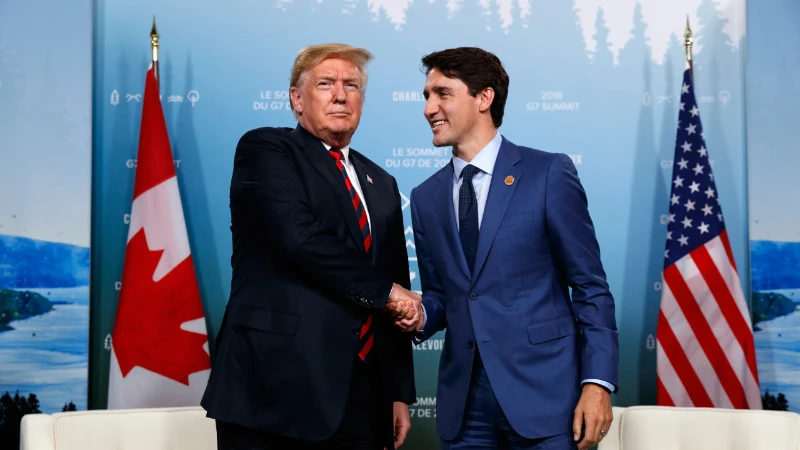Hegseth's Controversial European Mission Raises Eyebrows
As Secretary of Defense Pete Hegseth embarks on a pivotal trip to Europe, questions arise about the implications for U.S. foreign policy and military commitments amidst rising global tensions.
In a move that has drawn both attention and controversy, Secretary of Defense Pete Hegseth recently embarked on a significant diplomatic mission to Europe. This trip is seen as pivotal in the context of U.S. national security and international relations, particularly given the current geopolitical climate. Hegseth's journey underscores the United States' ongoing commitment to its allies while also raising questions about power dynamics and strategic priorities.
Hegseth's itinerary included key stops in Germany, Belgium, and Poland - each location holding strategic importance for different reasons. In Germany, he visited U.S. European Command (USEUCOM) and U.S. Africa Command (AFRICOM), where he met with senior military leaders to discuss operational updates and readiness. These meetings were crucial for assessing the current state of affairs in both theaters and reaffirming commitments to American service members stationed abroad.
The Brussels leg of his trip was marked by participation in two high-profile gatherings: the NATO Defense Ministerial and the Ukraine Defense Contact Group meeting. At these events, discussions centered around increasing defense spending among NATO allies - a topic that has sparked debate amid rising tensions globally.
"President Trump will not allow anyone to turn Uncle Sam into Uncle Sucker," Hegseth declared at the NATO summit, emphasizing a firm stance on defense contributions from allied nations. However, this rhetoric has been met with skepticism by some who argue it oversimplifies complex international relationships
A significant portion of Hegseth’s message focused on reiterating President Trump's commitment to seeking a diplomatic resolution for Ukraine amidst ongoing conflict - a sentiment echoed during his opening remarks at the Ukraine Defense Contact Group meeting. Yet critics question whether such diplomacy is feasible under current conditions.
"Two Combatant Commands that are right in front lines of advancing American interests." - Pete Hegseth
In Poland, discussions with local leaders revolved around strengthening bilateral defense cooperation and enhancing deterrence efforts along NATO’s eastern flank - an area perceived as vulnerable due to proximity with Russia. Polish officials have expressed appreciation for continued support but remain wary about potential escalations.
"If he said something accurate I would have nothing negative to say about it." - Angry Staffer
Reactions from various stakeholders have been mixed regarding Hegseth's trip. Some military personnel express support for bolstered alliances; others voice concern over increased U.S. commitments abroad potentially stretching resources thin. Public sentiment reflects similar divisions between those prioritizing national security versus fears of overreach.
The public reaction to Hegseth's trip has been mixed, with some citizens expressing concern over the increased military presence in Europe. "It's a delicate balance between ensuring national security and avoiding unnecessary escalation," said one concerned citizen. Others fear that such moves could be perceived as aggressive posturing rather than protective measures.
"Hegseth's rhetoric is embarrassingly simplistic. Reducing complex international relations to a playground taunt doesn't serve the U.S. or NATO well." Richard Angwin
Experts have weighed in on the implications of strengthening alliances through these high-profile visits, with some cautioning against an over-reliance on U.S.-led initiatives for regional stability. Dr. Emily Carter, a political analyst, noted, "While reinforcing alliances is crucial, there's a risk of creating dependency rather than fostering independent capabilities among allies." This sentiment echoes concerns about whether European nations are being encouraged to develop their own defense strategies or simply follow Washington's lead.
Criticism from political figures and organizations has also emerged, arguing that this approach may escalate tensions instead of resolving them peacefully. Senator Mark Thompson stated, "By increasing our military footprint without clear diplomatic objectives, we risk sending mixed signals to both our allies and adversaries." Such criticism highlights fears that bolstering military presence might provoke rather than deter potential threats.
Social media platforms have played a significant role in shaping public perception during Hegseth's visit. Tweets criticizing his statements at the NATO summit went viral quickly, reflecting widespread skepticism about his leadership abilities and strategic vision.
"An obvious disconnect here at this NATO summit: Hegseth tells defence ministers that Europe should take control of its own security." Dave Keating
In response to these criticisms, Secretary Hegseth and his team have defended their actions by emphasizing the necessity of enhancing American warfighter capabilities through engagements abroad. They argue that such efforts are essential for maintaining global peace and stability while ensuring America's readiness against any threat.
Despite these justifications, questions remain about whether these actions are truly aimed at improvement or if they serve more self-interested purposes under the guise of diplomacy. The broader implications for future U.S.-Europe relations hinge on how effectively these concerns are addressed moving forward.
As diplomatic missions like this continue to unfold globally, they will undoubtedly influence public trust in government decisions related to foreign policy. The challenge lies in balancing assertive defense strategies with genuine diplomatic engagement - a task requiring careful consideration by leaders worldwide.
